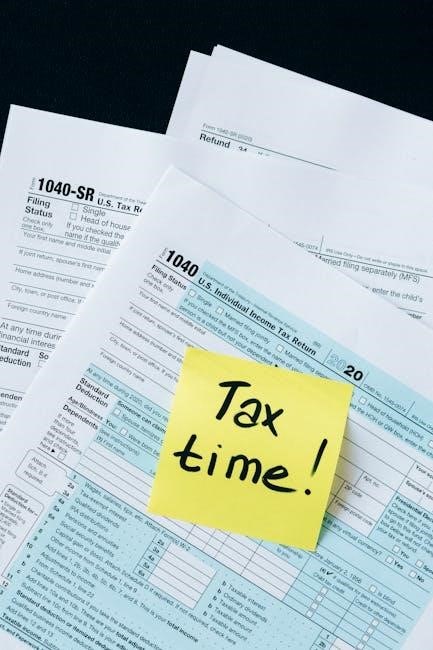The NJ Estate Tax Return is a legal requirement for estates exceeding certain thresholds‚ ensuring proper tax assessment and compliance with state regulations. It guides executors through the process of reporting assets‚ calculating taxes‚ and submitting necessary documentation to avoid penalties. Understanding the instructions is crucial for accurate filing and timely completion.
Understanding the Basics of NJ Estate Tax
The New Jersey Estate Tax applies to the transfer of a deceased person’s assets to beneficiaries. It is based on the value of the estate and the relationship of the beneficiaries to the decedent. The tax rate varies‚ with closer relatives (e.g.‚ spouses‚ children) often receiving more favorable treatment. The estate must file a return if its value exceeds the exemption threshold. Key components include determining the taxable estate‚ applying exemptions‚ and calculating the tax owed. Proper documentation and adherence to state guidelines are essential to ensure compliance and avoid penalties.
Who Needs to File an NJ Estate Tax Return?
The executor of the estate‚ responsible for managing the deceased’s affairs‚ must file the NJ Estate Tax Return if the estate’s value exceeds the exemption threshold. This threshold is relatively low in New Jersey‚ around $2 million. Executors should be aware of the nine-month filing deadline from the date of death to avoid penalties. Beneficiaries may also need to seek legal action if the executor fails to communicate or handle the estate properly. Accurate documentation‚ including asset appraisals and beneficiary details‚ is crucial for correct filing. Understanding exemptions and recent law changes is essential for compliance‚ and non-filing can lead to penalties or legal consequences. Executors should consider professional assistance to ensure proper filing and adherence to all requirements.
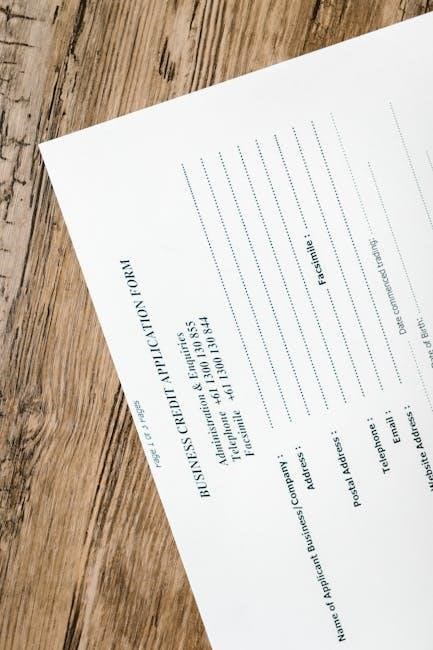
Filing Requirements for NJ Estate Tax Return
The estate must file if its value exceeds New Jersey’s exemption threshold. Executors are responsible for submitting within nine months of the decedent’s death.
Who Must File the NJ Estate Tax Return?
The executor or personal representative of the estate is responsible for filing the NJ Estate Tax Return. This duty typically falls on the person overseeing the distribution of the deceased’s assets. Estates exceeding New Jersey’s exemption threshold must file the return‚ regardless of whether the decedent was a state resident or a non-resident with assets in New Jersey. The filing is mandatory within nine months of the decedent’s death‚ ensuring compliance with state tax regulations and avoiding potential penalties.
Deadline for Filing the NJ Estate Tax Return
The NJ Estate Tax Return must be filed within nine months of the decedent’s date of death. Missing this deadline may result in penalties and interest on the unpaid tax. Executors should prioritize meeting this timeframe to ensure compliance and avoid additional financial obligations. If more time is needed‚ an extension request can be submitted‚ but any taxes due should be paid by the original deadline to prevent accrued penalties. Timely filing is essential for maintaining estate matters in order and fulfilling legal responsibilities.
Required Forms and Documents
Filing the NJ Estate Tax Return requires specific forms and documentation. The primary form is the Form IT-Estate‚ which must be completed accurately; Additional documents include the decedent’s will‚ estate inventory‚ appraisals of assets‚ and death certificate. Executors must also provide detailed records of all assets‚ liabilities‚ and distributions. Supporting documents like bank statements‚ property valuations‚ and tax receipts may be necessary. Ensuring all required forms and documents are gathered and properly prepared is essential for a smooth and accurate filing process. Missing or incomplete documentation can lead to delays or complications.

Calculating the NJ Estate Tax
Calculating the NJ Estate Tax involves determining the taxable estate‚ applying exemptions and deductions‚ and understanding the applicable tax rates. This process ensures accurate tax assessment.
How to Determine the Taxable Estate
To determine the taxable estate‚ you must include all assets owned by the decedent at the time of death‚ such as real estate‚ securities‚ and personal property. The gross estate value is calculated by summing these assets. Certain deductions‚ like funeral expenses‚ debts‚ and transfers to charities or spouses‚ may reduce the taxable amount. The estate’s value must exceed New Jersey’s exemption threshold to be subject to taxation. Proper documentation and appraisal of assets are essential for an accurate assessment.
Applying Exemptions and Deductions
Exemptions and deductions reduce the taxable estate‚ lowering the overall tax liability. New Jersey allows an unlimited marital deduction for assets transferred to a surviving spouse. Charitable deductions apply to assets donated to qualified organizations. Other deductions include funeral expenses‚ debts owed by the estate‚ and administrative costs. Proper documentation is required to claim these exemptions and deductions. Ensure all eligible reductions are accounted for to minimize the taxable estate accurately. Consulting tax professionals can help navigate complex rules and maximize available exemptions.
Understanding NJ Estate Tax Rates
New Jersey estate tax rates are progressive‚ ranging from 5% to 16%‚ depending on the taxable estate’s value. Estates exceeding the exemption threshold are taxed incrementally‚ with higher portions subject to higher rates. The tax applies to the amount above the exemption‚ ensuring smaller estates are taxed at lower rates. Understanding these rates helps executors estimate tax liabilities accurately. Proper calculation is essential to avoid overpayment or underpayment‚ ensuring compliance with state tax regulations. Consulting tax professionals can provide clarity on specific rate applications and estate planning strategies.
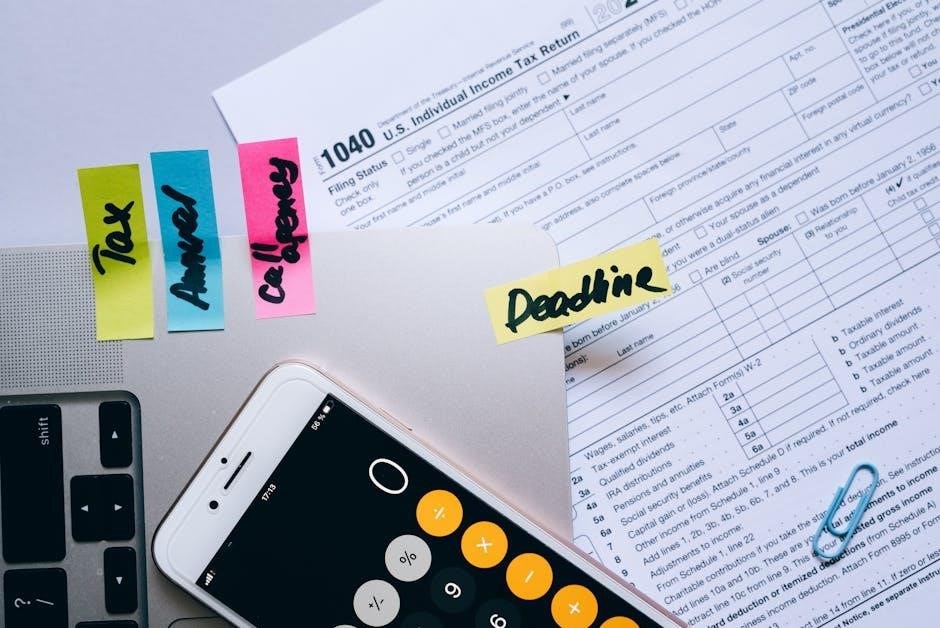
Filing the NJ Estate Tax Return
Filing the NJ Estate Tax Return involves gathering all necessary documentation‚ accurately completing the required forms‚ and submitting them to the state authorities in a timely manner.
Gathering Necessary Documentation
Gathering necessary documentation is a critical step in filing the NJ Estate Tax Return. Executors must collect all relevant documents‚ including the decedent’s will‚ property deeds‚ financial statements‚ and tax records. Inventorying assets‚ such as real estate‚ investments‚ and personal property‚ is essential for accurate valuation. Beneficiary information‚ appraisals‚ and any outstanding debts should also be compiled. Ensuring all documents are complete and organized helps prevent delays and ensures compliance with state tax regulations. Missing or incomplete documentation can lead to penalties or additional scrutiny during the audit process.
Completing the NJ Estate Tax Return Form
Completing the NJ Estate Tax Return Form requires precise and detailed information. Executors must accurately enter the decedent’s and estate’s information‚ including the federal tax ID and dates. All assets‚ liabilities‚ and deductions should be listed‚ with values clearly stated. Beneficiary details and distribution plans must be included. Ensure all calculations align with New Jersey tax regulations. Sign and date the form‚ attaching required schedules and documentation. Accuracy is crucial to avoid delays or penalties. Double-check all entries before submission to ensure compliance with state tax requirements and a smooth filing process.
Submitting the Return and Payment
Once the NJ Estate Tax Return is completed‚ it must be submitted to the New Jersey Division of Taxation. Ensure all required documentation and payments are included. Payments can be made by check or electronic funds transfer. The return should be mailed to the address provided in the instructions. Late submissions may result in penalties‚ so adherence to deadlines is critical. Confirm receipt by using certified mail or an electronic filing confirmation. Accurate submission ensures compliance and avoids additional issues. Proper documentation and timely payment are essential for a smooth process.
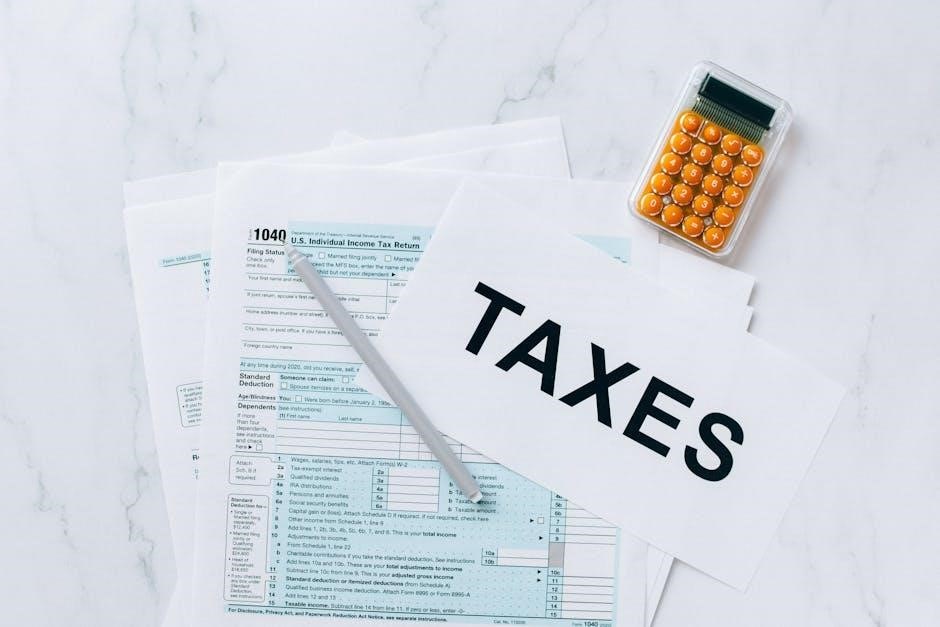
Payment and Penalties
Payment for the NJ Estate Tax can be made via check or electronic funds transfer. Late payments incur penalties and interest‚ emphasizing the importance of timely submission.
Payment Options for NJ Estate Tax
The NJ Estate Tax can be paid via check or money order‚ made payable to the State of New Jersey. Electronic Fund Transfer (EFT) is also an option for convenience. Payments should accompany the completed tax return and include the estate’s tax identification number. Mailing instructions and specific payment details are provided in the return form. Late payments may result in penalties and interest. It’s essential to retain proof of payment for records. Additional guidance on payment methods and deadlines is available in the official NJ Estate Tax instructions.
Consequences of Late Payment or Non-Payment
Late payment or non-payment of the NJ Estate Tax can result in penalties and interest on the unpaid amount. The state may impose a penalty of up to 25% of the unpaid tax‚ along with interest accrued from the original due date. Additionally‚ failure to pay may lead to collection actions‚ including liens on estate assets or withholding of refunds. It’s crucial to address payment issues promptly to avoid further complications. Consulting the official NJ Estate Tax instructions or a tax professional is recommended to resolve payment discrepancies effectively and minimize penalties.
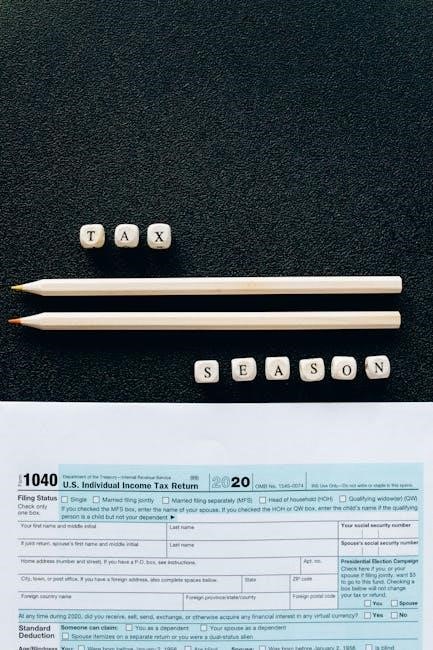
The Audit Process
The NJ Estate Tax audit process involves a detailed review of the return to ensure accuracy and compliance with state tax laws‚ addressing any discrepancies found during the examination.
Understanding the Audit Process for NJ Estate Tax
The New Jersey Estate Tax audit process involves a thorough examination of the filed return to verify accuracy and compliance with state tax regulations. The NJ Division of Taxation reviews the submitted forms‚ supporting documentation‚ and calculations to ensure all assets‚ deductions‚ and exemptions are correctly reported. If discrepancies are found‚ the taxpayer may receive a notice outlining issues and potential adjustments. Taxpayers have the right to respond‚ provide additional documentation‚ or request a conference to address concerns. Understanding the audit process helps ensure compliance and minimizes the risk of penalties or further action.
Refiling the Return if Necessary
If the audit identifies errors or discrepancies in the original NJ Estate Tax Return‚ refiling may be required to correct the inaccuracies. Taxpayers must prepare an amended return‚ ensuring all corrections are clearly documented and supported by relevant evidence. The updated form should be submitted within the specified deadline to avoid additional penalties. Refiling ensures compliance with state tax regulations and resolves any issues identified during the audit process. It is essential to carefully review and verify all information before resubmitting to prevent further complications or delays.

Handling Discrepancies
Discrepancies in estate tax returns require prompt attention to ensure accuracy and compliance. Addressing inconsistencies through audits or beneficiary actions helps resolve issues efficiently and maintain legal standards.
Addressing Discrepancies in the Filed Return
If discrepancies are found in a filed NJ Estate Tax Return‚ prompt action is required to ensure compliance and avoid penalties. The executor or legal representative should thoroughly review the return for accuracy‚ cross-checking all reported assets‚ deductions‚ and tax calculations. Any errors or omissions must be corrected by filing an amended return. Beneficiaries or the state may also identify discrepancies during audits or reviews. Legal and tax professionals can provide guidance to resolve issues efficiently. Addressing discrepancies promptly helps maintain the integrity of the estate and avoids further complications or legal challenges.
Amending the Return
If errors or omissions are identified in the filed NJ Estate Tax Return‚ it is necessary to amend the return promptly. The amended return must include corrected information‚ such as updated asset valuations‚ revised deductions‚ or additional documentation. Executors should file a corrected Form IT-Estate with the New Jersey Division of Taxation. A written explanation of the changes must accompany the amended return. Beneficiaries or legal representatives may also request amendments if discrepancies are discovered. Timely amending ensures compliance‚ avoids penalties‚ and resolves any issues efficiently. Proper documentation and professional guidance are recommended to ensure accuracy.
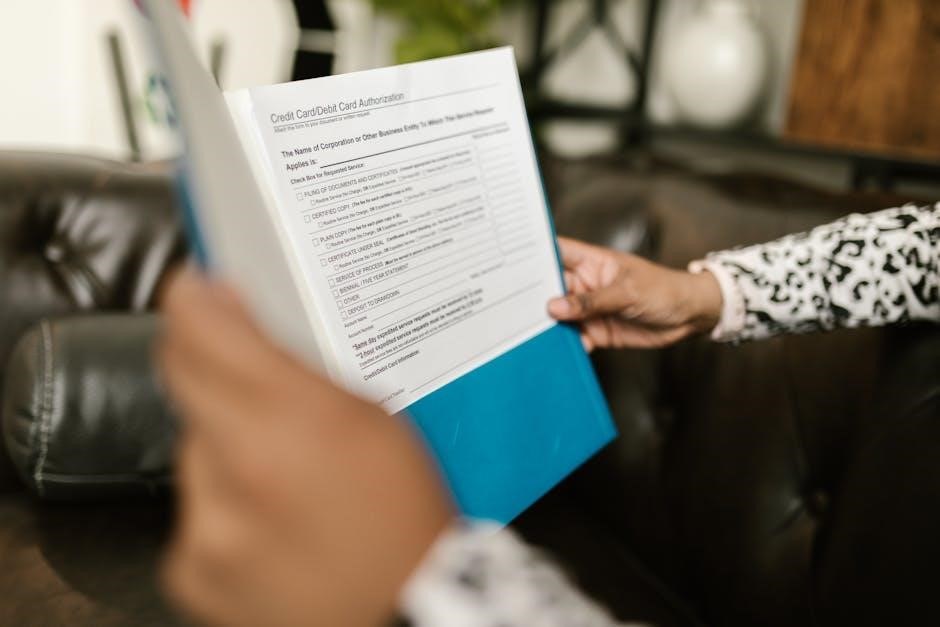
Extensions and Additional Requirements
Estate representatives may request a filing extension under specific circumstances. Additional documentation or forms‚ such as Form IT-Estate‚ may be required to complete the process accurately.
Requesting an Extension for Filing
To request an extension for filing the NJ Estate Tax Return‚ executors or representatives must submit the necessary paperwork and meet specific criteria. Extensions are typically granted for valid reasons‚ such as unresolved estate matters or complex asset valuations. The process involves filing Form IT-Estate and providing supporting documentation. A payment of the estimated tax liability may be required to avoid penalties. The extension period is generally six months from the original deadline‚ allowing sufficient time to gather all required information and complete the return accurately. Proper documentation and timely submission are crucial to ensure compliance and avoid additional fees or legal complications.
Other Forms and Schedules
When filing the NJ Estate Tax Return‚ additional forms and schedules may be required depending on the estate’s circumstances. Forms such as GIT/REP for real property transfers or PA-40 V for specific income tax situations may need to be completed. These forms ensure accurate reporting of assets and income. Schedules may include detailed listings of property‚ deductions‚ or exemptions. If the estate involves rental properties or complex assets‚ supplementary documentation is necessary. Executors must ensure all forms are accurately completed and submitted alongside the main return to comply with state tax regulations and avoid delays or penalties. Proper organization and attention to detail are essential.

Checking Refund Status
Beneficiaries or executors can check the status of their NJ Estate Tax refund online or by phone for updates on processing and issuance timelines.
How to Check the Status of Your NJ Estate Tax Refund
To check the status of your NJ Estate Tax refund‚ visit the official New Jersey Division of Taxation website or contact their customer service hotline. Online‚ navigate to the refund status section‚ enter your Social Security number or Employer Identification Number‚ and the tax year of your return. You can also call the NJ Taxation hotline for assistance. Ensure you have your return details ready for verification. This service provides updates on processing timelines and issuance of refunds‚ helping you stay informed about your estate tax refund status.
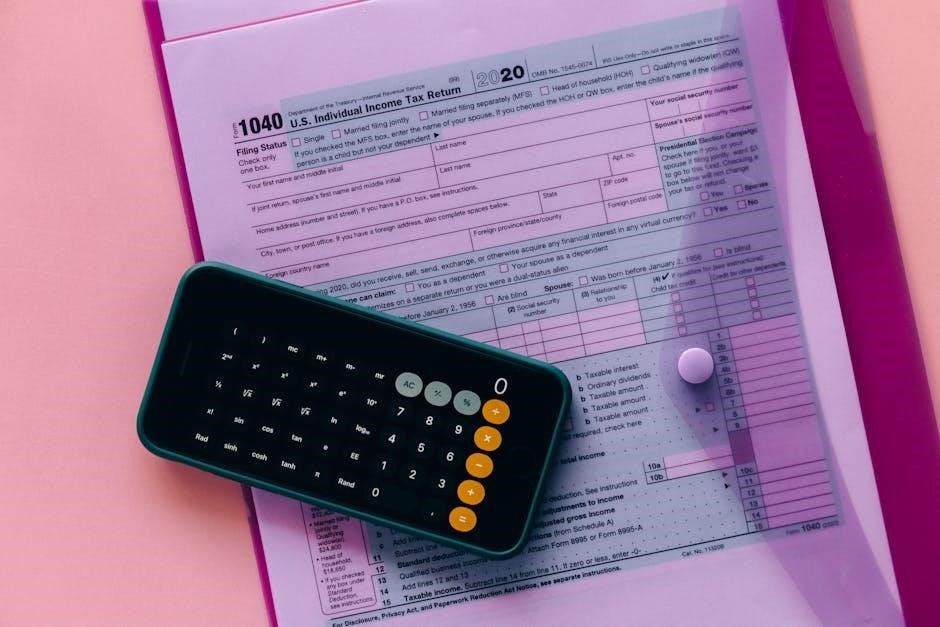
Common Mistakes to Avoid
Common errors include missing deadlines‚ using incorrect forms‚ miscalculating the taxable estate‚ and failing to include all required documentation. Always double-check calculations and consult a professional if unsure.
Common Errors in Filing NJ Estate Tax Returns
Common errors include incorrect beneficiary information‚ improper asset valuation‚ and miscalculations of exemptions. Failing to report all assets or missing deadlines can lead to penalties. Ensure accurate documentation and proper tax calculations. Avoid errors in completing forms and double-check all details before submission to prevent delays or additional fees. Consulting a tax professional can help mitigate these issues and ensure compliance with state regulations.
Understanding and following NJ Estate Tax Return instructions ensures compliance‚ avoiding penalties‚ and accurate tax assessment. Proper preparation and timely filing are essential for a smooth process.
Final Tips for Filing NJ Estate Tax Returns
Filing the NJ Estate Tax Return requires careful attention to detail and adherence to deadlines. Ensure all forms and documents are accurately completed and submitted on time. Double-check calculations for exemptions‚ deductions‚ and taxable estate values to avoid errors. Consult a tax professional if complexities arise. Organize all supporting documents‚ such as appraisals and beneficiary information‚ to streamline the process. Verify payment options and refund status regularly. Timely addressing discrepancies and amending returns if necessary ensures compliance and avoids penalties. Proper preparation and organization are key to a smooth filing experience.
